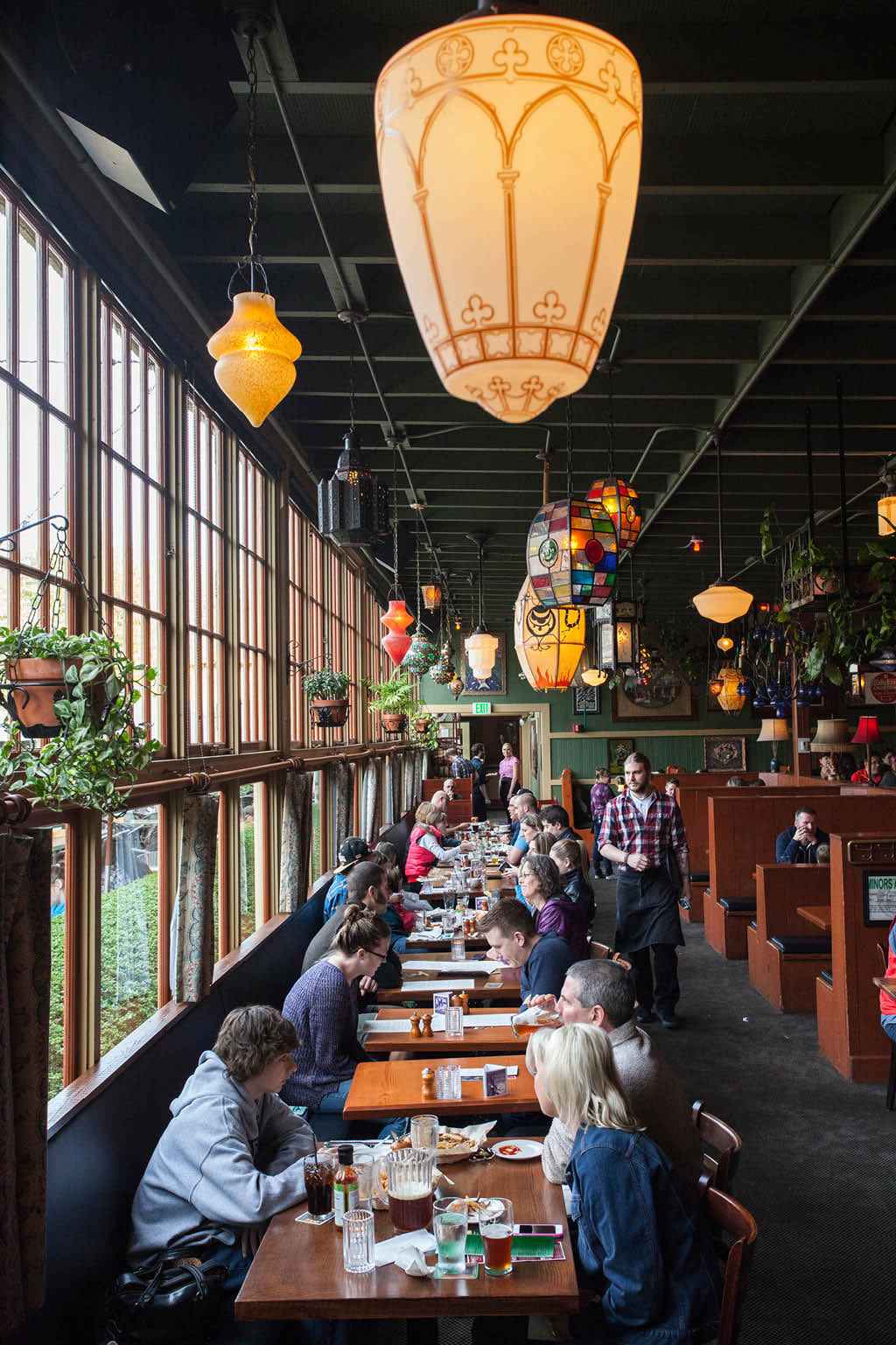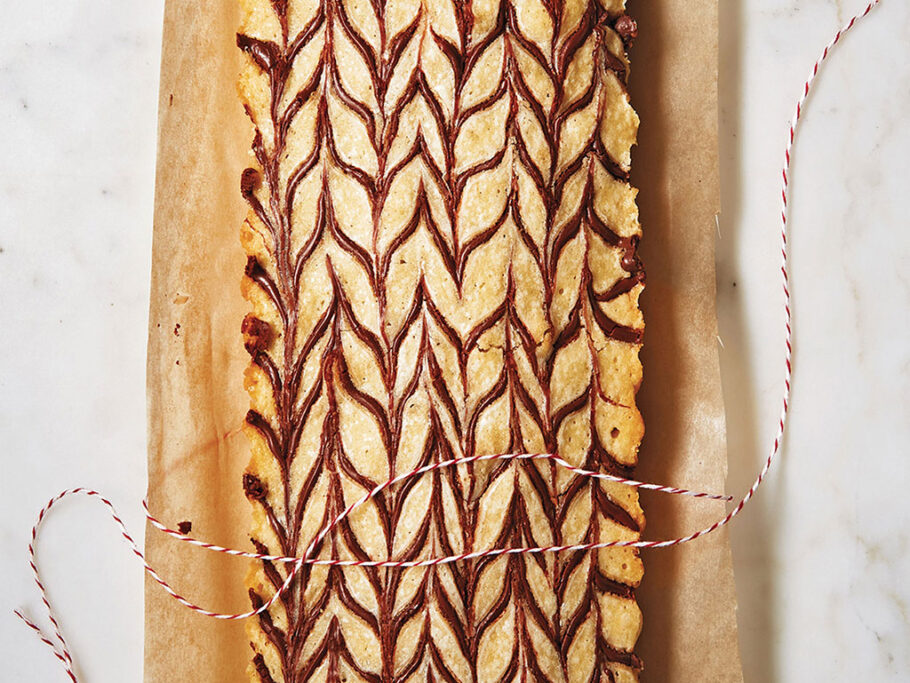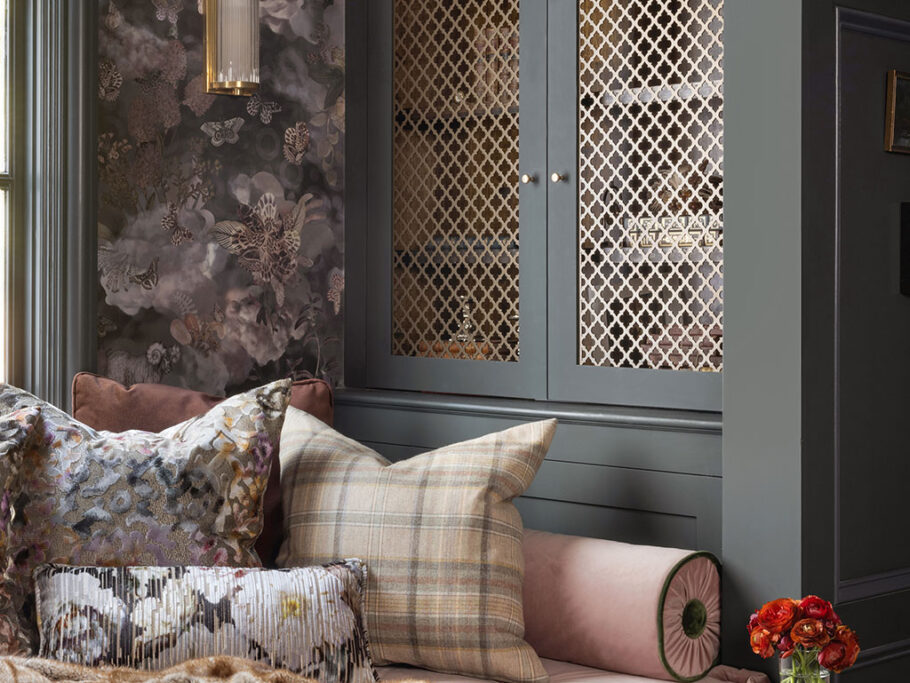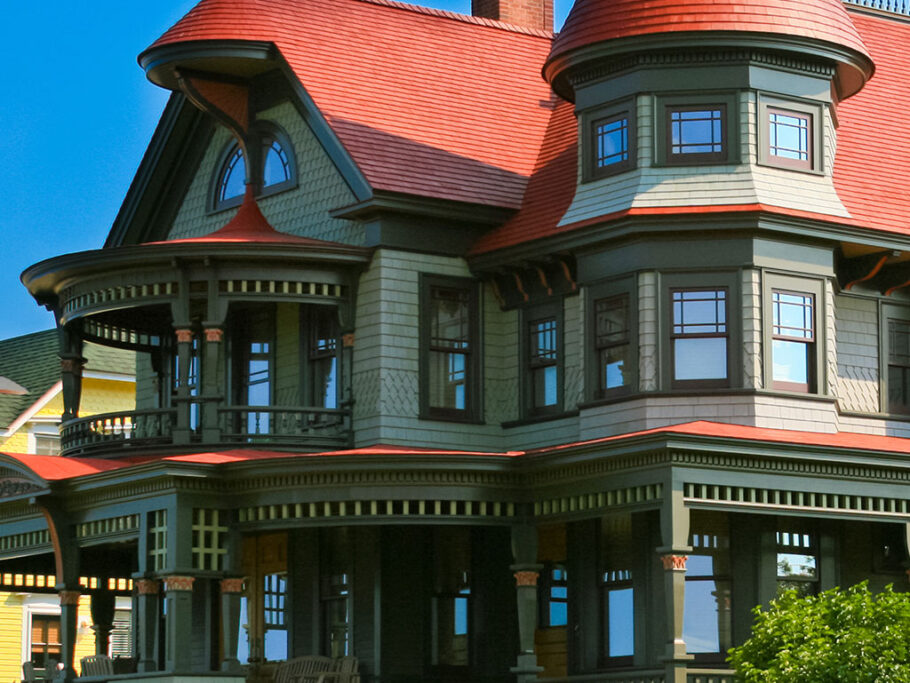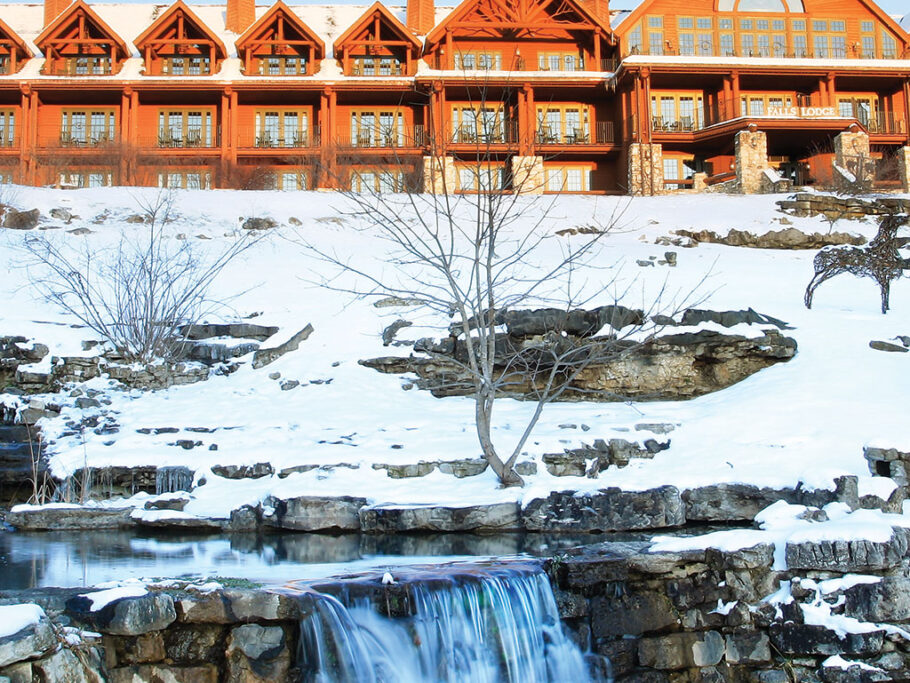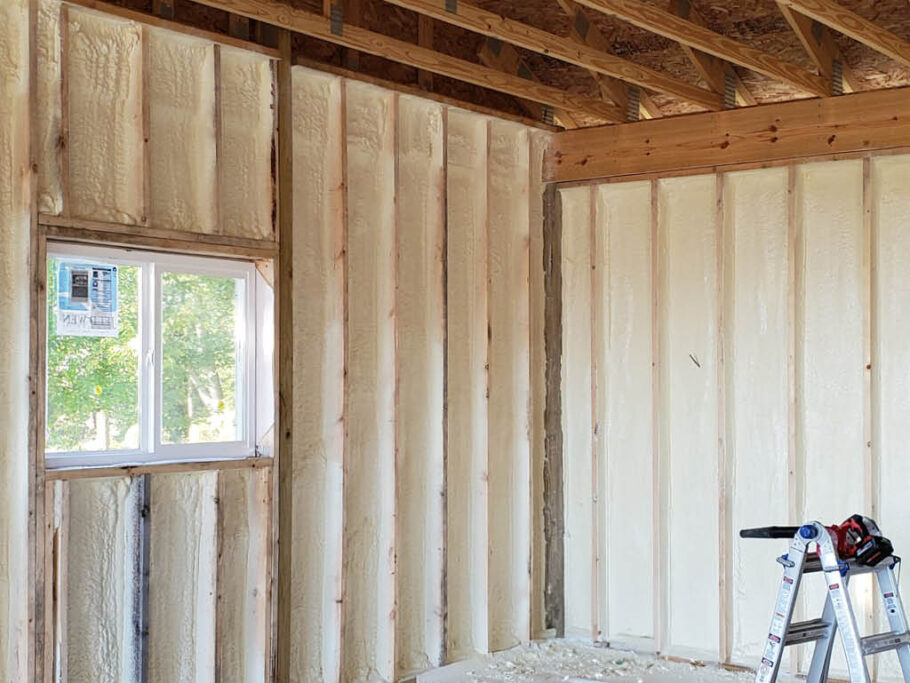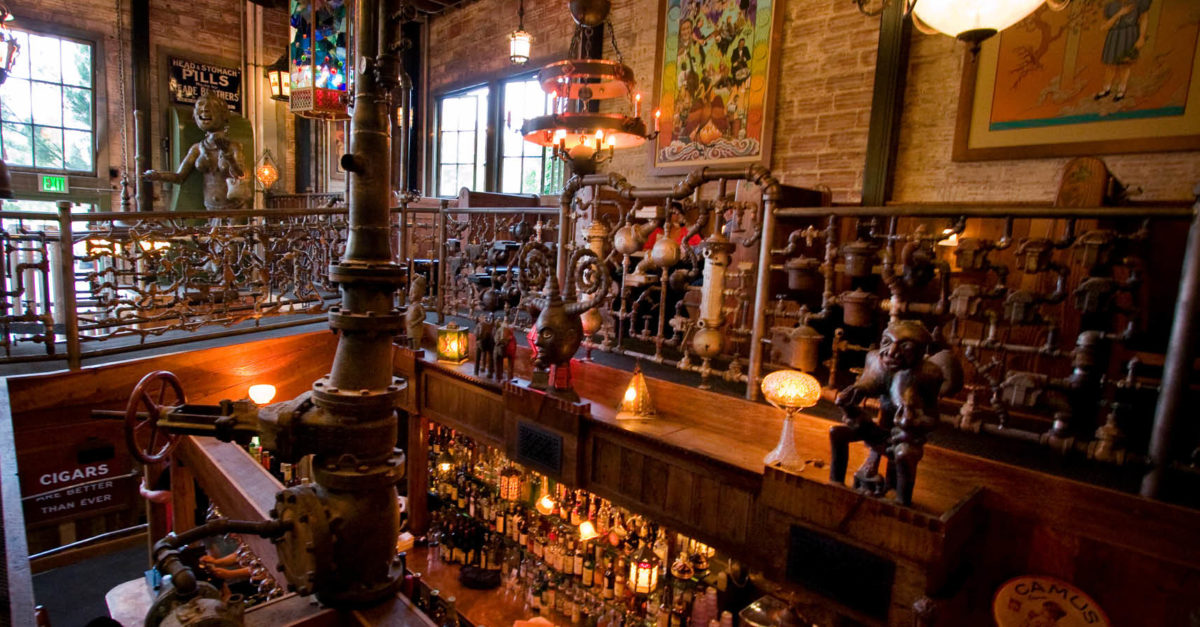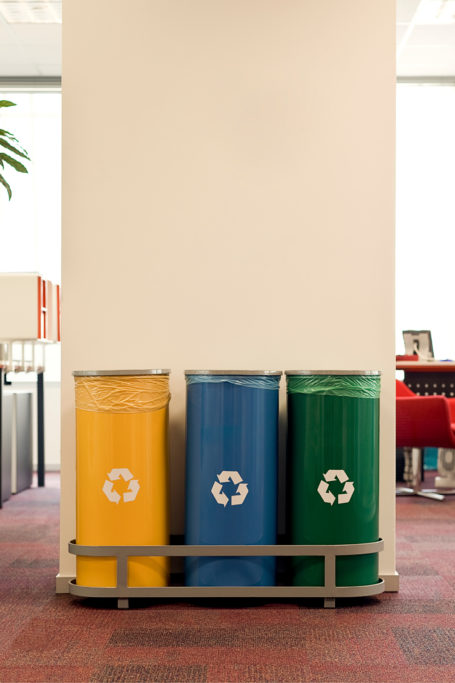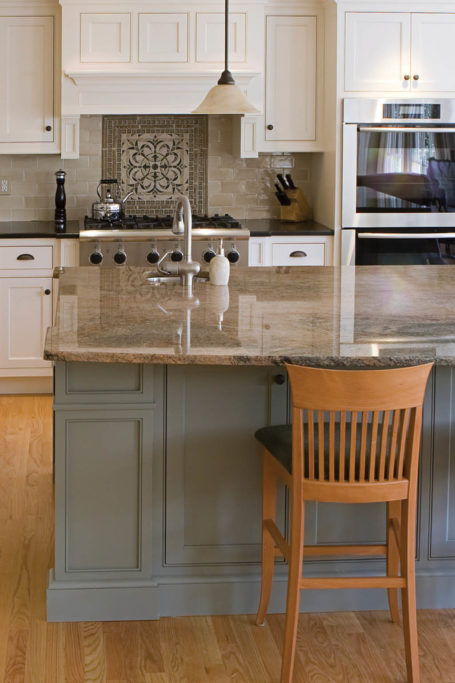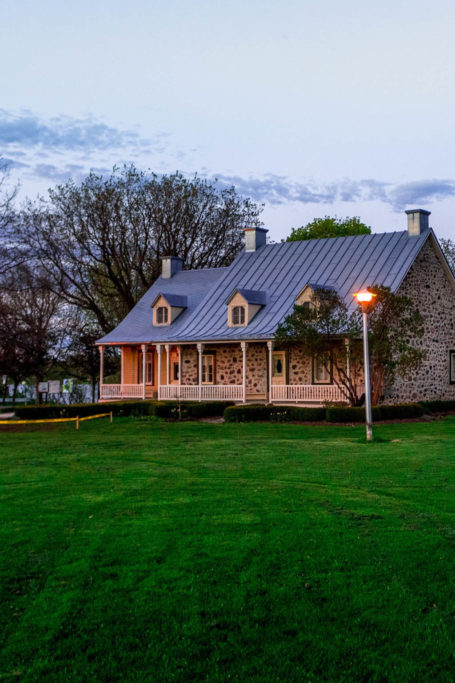McMenamins on the Menu
It was just an ordinary afternoon at the Kennedy School in Portland, Oregon. A group was happily splashing away in the soaking pool. In an empty classroom, a couple was inscribing “J.W. loves J.B.” in chalk on the blackboard. And down the hall in detention a good time was being had by all. That is to say, a great time in the Detention Bar at the Kennedy School, one of Portland’s more innovative dining destinations.
The former Kennedy Elementary School in northeast Portland is one of dozens of renovated venues throughout Oregon and Washington developed by brothers Mike and Brian McMenamin.
The actual Kennedy Elementary was slated for demolition when the McMenamin brothers bought the building in the 1990s. Today, the old cafeteria is the Courtyard Restaurant, whose menu includes sandwiches like the Schoolhouse Lunch: turkey, salami, provolone, onion, tomato, and vinaigrette on focaccia. Several classrooms—with chalkboards—are now hotel suites. The old auditorium shows both classic and modern films, and even the boiler room was converted into a bar for the McMenamins’ signature Hammerhead Ale.
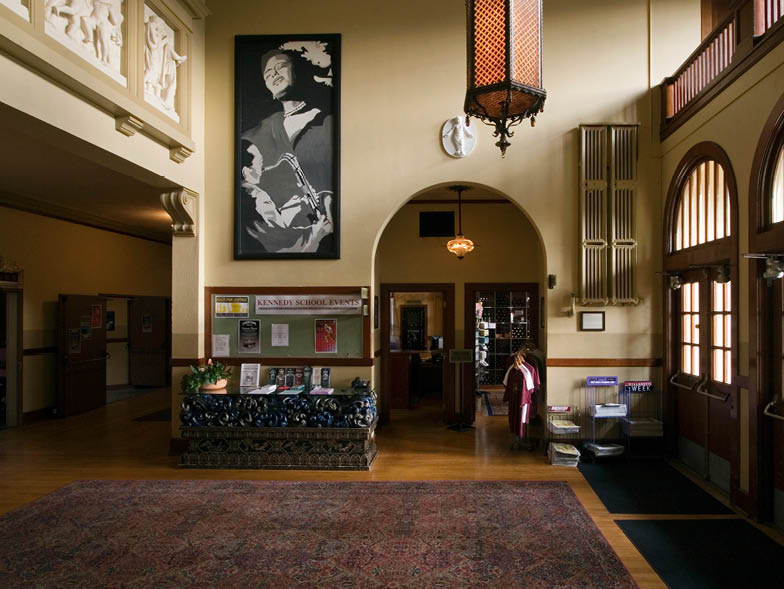
The brothers also bought the farm—literally: Edgefield, the Multnomah County Poor Farm in Troutdale, twenty miles east of Portland. Built in 1911, the complex was slated for the wrecking ball in 1985 until these preservationists prevailed. Now on the National Register of Historic Places, the 74-acre Edgefield property includes a hotel, restaurants, pubs, a brewery, a spa, and two par-three golf courses. In-season produce is harvested directly from the property’s produce garden, and the on-site winery produces over twenty wines and ports, including Pinot and rosé, and, notably, also makes seasonal ciders.
Overall, the McMenamin brothers have an eclectic roster of more than fifty properties, from the Anderson School in Bothell, near Seattle, to a 1912 Southern Pacific rail station in Roseburg, Oregon. They have repurposed old hotels, a former fraternal lodge, a closed Catholic school, a bank, an old farmhouse and barn, and a legendary vaudeville theatre.
With such a diversified slate, it would be fair to ask: what is it the McMenamins look for? Mike and Brian scope out underused (or disused) places the company can transform into venues that will appeal to travelers, much like the village pubs and inns of England, France, and Italy. What motivates the brothers, who both majored in political science in college, is the challenge to create an experience for people who want more than just a place to drink, to eat, or to spend the night—they want each place to be a unique destination unto itself.
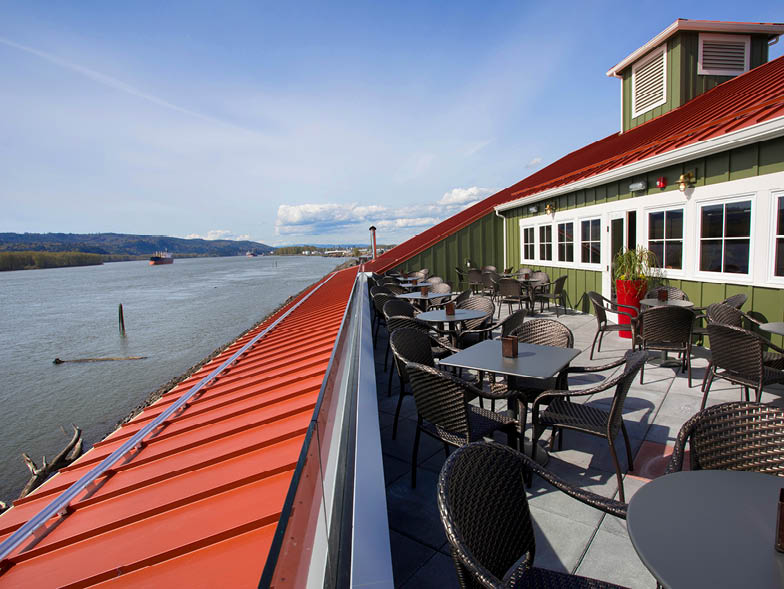
To that end, the brothers compile materials and artifacts associated with each building to commemorate both the property and its historical value to its surrounding community—even employing historians and soliciting the public for authentic memorabilia and photos of their sites to help in the effort. They also commission area artists to make exclusive works specific to the history of each property that are displayed throughout. As a result, every McMenamins venue connects the past to the present and celebrates the building’s original purpose.
Consider the McMenamins’ makeover of the iconic Old Saint Francis School in Bend, a culturally eclectic city in Oregon’s central valley. Back in the day, Bend was (and still is, in some ways) a lumber town. In the early twentieth century, Irish priest Father Luke Sheehan arrived in Bend and, after decades of effort, opened the parish and school, the first of its kind in the state. By the year 2000, the school had built and moved to a much larger campus in northeast Bend.
Thanks to the McMenamin brothers, the old school still resonates today as a hotel with restaurants and pubs, and—with artwork abounding honoring Father Sheehan and other school faculty—as a testament to the building’s place in Bend’s history.
As you enter the pub, you are welcomed by a masthead figurine of Ruby, the namesake of McMenamins’ raspberry-flavored Ruby Ale. Should you stay for lunch, try the Expedition Elk Burger, which is served with coffee-bacon jam, black garlic aioli, and white cheddar.
Also of note for its art is the Smoke Room. Its gallery features artwork that depicts a rendering of vaudeville legend and longtime Bend resident Kathleen Rockwell, also known as “Klondike Kate.” Next is the Fireside Bar, hallowed by the Knights of Columbus as a “truly great place to pass the time.” If this is all too exhaustive, you may head directly to the soaking pool with its iconic sun-and-moon stained-glass windows and murals made of hand-painted
tiles covering the walls that reflect the life of the school’s namesake and his compassion for animals. Use of the pool is complimentary for overnight guests.
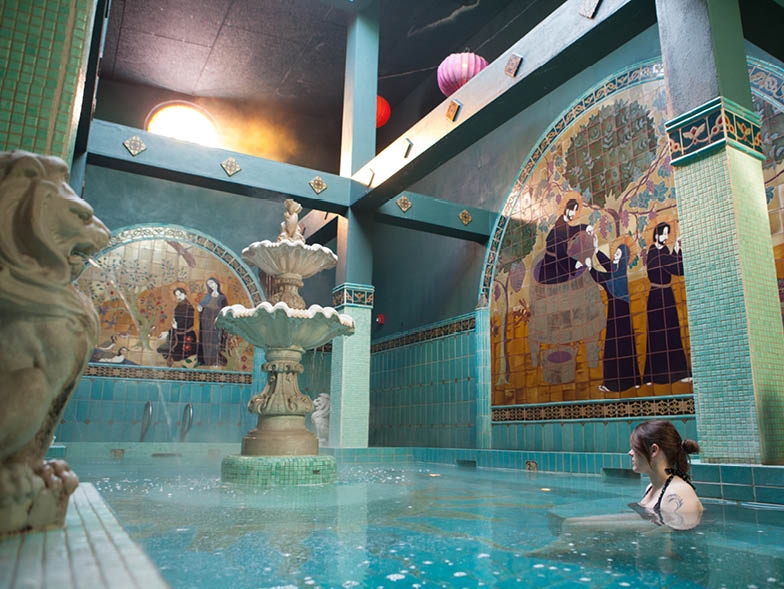
Not all McMenamins projects have been transformed into hotels and restaurants. In Portland, the former Swedish Tabernacle Mission meeting hall, at Northwest Glisan Street, is now the Mission Theatre. It hosts movies, musical events, and stand-up comedians. Along Hawthorne Boulevard in Portland’s artsy southeast neighborhood, the historic Bagdad Theater and Pub—the first to show “talkies” in the area almost a century ago—now features a digital 4K projector and giant screen.
And then there’s the Crystal Ballroom, a legendary century-old building on Burnside Street that McMenamins purchased in 1994. Originally a jazz dance hall and then a square-dancing destination, it later hosted iconic acts such as Little Richard, James Brown, Marvin Gaye, and the Grateful Dead and was added to the list of National Register of Historic Places in 1979. Today, the Crystal Ballroom features a unique floating dance floor and welcomes modern bands like Arcade Fire, who famously played at the Crystal in 2005 and then continued the concert downstairs in the streets of Portland.
The brothers’ latest project, the island-themed Kalama Harbor Lodge, opened in April of 2018. Nestled on the Columbia River, the forty-room hotel is a decade-old labor of love for the McMenamins. It honors the heritage of Hawaiian-born John Kalama and his impact on the region and the town that bears his name, as well as that of Native American tribes such as the Cowlitz people, who first settled in the area. Historical artifacts and accounts abound, including in the guest rooms, the eateries, and the bars. For fun, there are even a few secret rooms hidden in the lodge to boot.
When not on the road developing new venues or supervising designers and crews among the company’s 2,000-plus employees, the McMenamin brothers operate out of the company’s headquarters in Portland—a former funeral and wedding parlor on North Killingsworth Street. The building is also home to a McMenamins eatery, the Chapel Pub, a true indication that Mike and Brian McMenamins’ quest to resurrect and transform landmarks in the Pacific Northwest hits close to home, literally and figuratively.
For more info, visit mcmenamins.com
